Via Robin Good
Get Started for FREE
Sign up with Facebook Sign up with X
I don't have a Facebook or a X account
 Your new post is loading... Your new post is loading...
 Your new post is loading... Your new post is loading...

Donella Marie Muzik's curator insight,
January 7, 2014 11:09 AM
A really wonderful way to describe a very important concept 
Eileen Forsyth's curator insight,
January 17, 2014 12:17 PM
Wow, this is what I've been thinking I should have my independent study kids doing!

Martha Mendez's curator insight,
August 14, 2013 2:43 PM
Thanks for your sharing.It is one of the challenges we have: to have people in this world with critical thinking.As a teacher, I am sure we will get it.
Martha 
Fiona Harvey's curator insight,
October 8, 2013 2:22 AM
Useful for educators - key digital literacy skill 
johanna krijnsen's curator insight,
December 4, 2013 2:00 PM
content curation and critical thinking skills

Begoña Iturgaitz's curator insight,
June 13, 2013 11:44 AM
focus on chart. The other ideas are the ones we've been dealing with for...ten years? Nire iritziz taula da interesgarriena. Gainerako ideiek +10 urte? dauzkate. |

John Gougoulis's curator insight,
August 19, 2014 6:34 AM
An absolutely significant skill in any research or investigation, for educators and learners in the digital age - the curation of content- with a clear focus or question in mind, the capacity to target a search field, sift through, reflect on and make decisions about the most suitable resource or evidence to use. What a great learning experience. 
Alina Dogaru's curator insight,
December 19, 2014 4:42 AM
Forstå og komme i gang med kurator tjenester. 
Carlos Germán Murillo's curator insight,
December 9, 2018 6:02 PM
La curación de contenidos abre una nueva puerta al aprendizaje y es que nos volvemos partícipes de la cadena, cuando nos detenemos a clasificar, analizar y publicar los contenidos que son más afines y relevantes según nuestras necesidades.

C-Marketing's curator insight,
September 4, 2013 8:35 AM
In regards to levels of curation it is much like Blooms.

Ra's curator insight,
September 8, 2013 6:17 PM
Explanation of levels of content curation - sets aspirational goal. Relevance to students as a pathway for their development. See Robin Good's great summary.

Rick Bessey's curator insight,
August 15, 2013 8:46 AM
More a place holder for now. Haven't read the article, but looks promising. 
Roberto Ivan Ramirez's comment,
August 15, 2013 8:56 PM
herramientas para aprender a curar información aplicadas al ámbito escolar, bastante recomendable esta práctica.

Diana Juárez's curator insight,
April 26, 2015 1:27 PM
La curación como herramienta pedagógica para propiciar el pensamiento crítico en la educación. 
Bárbara Mónica Pérez Moo's curator insight,
August 12, 2015 9:16 AM
Habilidades digitales y pensamiento crítico.
Sample Student's curator insight,
May 5, 2015 10:14 PM
We often ask our students to create annotated bibliographies, and this focuses on their capacity to evaluate and make decisions about the validity, reliability and relevance of sources they have found. using Scoop.it, we can ask them to do much the same thing, but they will publish their ideas for an audience, and will also be able to provide and use peer feedback to enhance and tighten up their thinking. This is relevant to any curriculum area. Of course it is dependent on schools being able to access any social media, but rather than thinking about what is impossible, perhaps we could start thinking about what is possible and lobbying for change.
Sample Student's curator insight,
May 5, 2015 10:18 PM
We often ask our students to create annotated bibliographies, and this focuses on their capacity to evaluate and make decisions about the validity, reliability and relevance of sources they have found. Using Scoop.it, we can ask them to do much the same thing. But they will publish their ideas for an audience, and will also be able to provide and use peer feedback to enhance and tighten up their thinking. This is relevant to any age, and any curriculum area. Of course it is dependent on schools being able to access social media. But rather than thinking about what is impossible, perhaps we should start thinking about what is possible, and lobbying for change. Could you use a Scoop.it collection as an assessment task? |




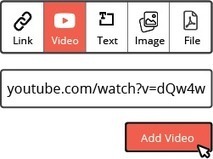

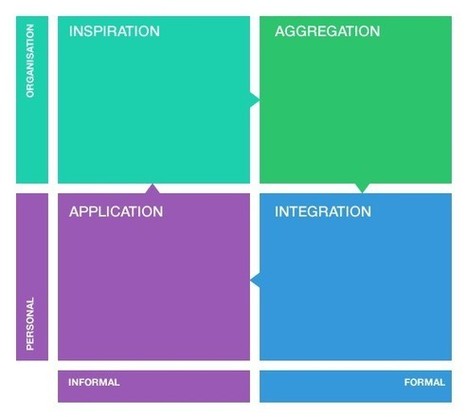
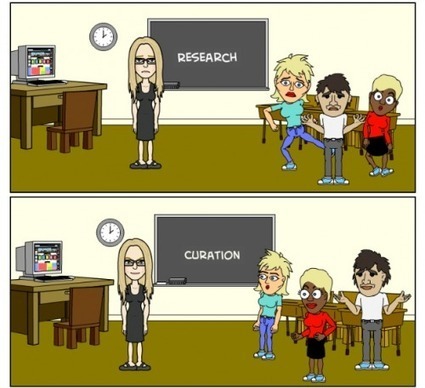
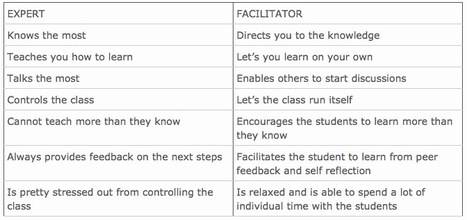


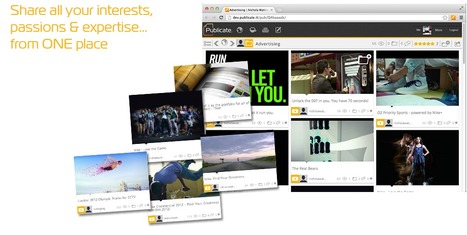

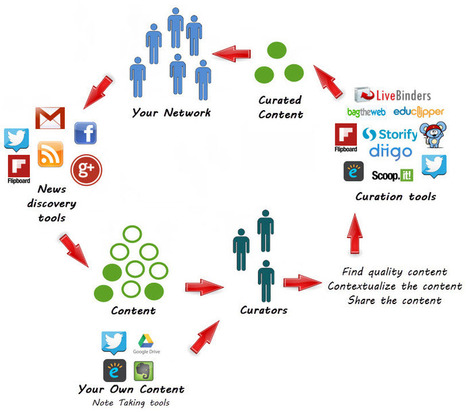
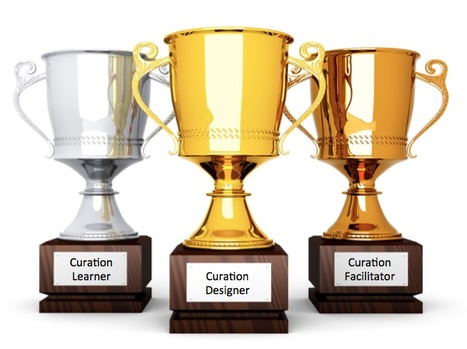


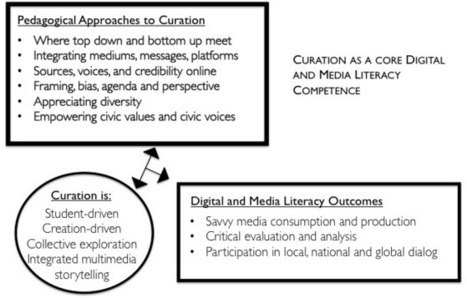

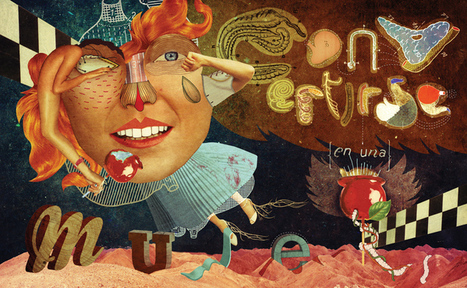






Playing with this new tool as I experiment with redesigning a course. Looks easy, flexible and powerful.
A very useful resource for anyone thinking of delivering on-line courses. Simple to use, and free!
161